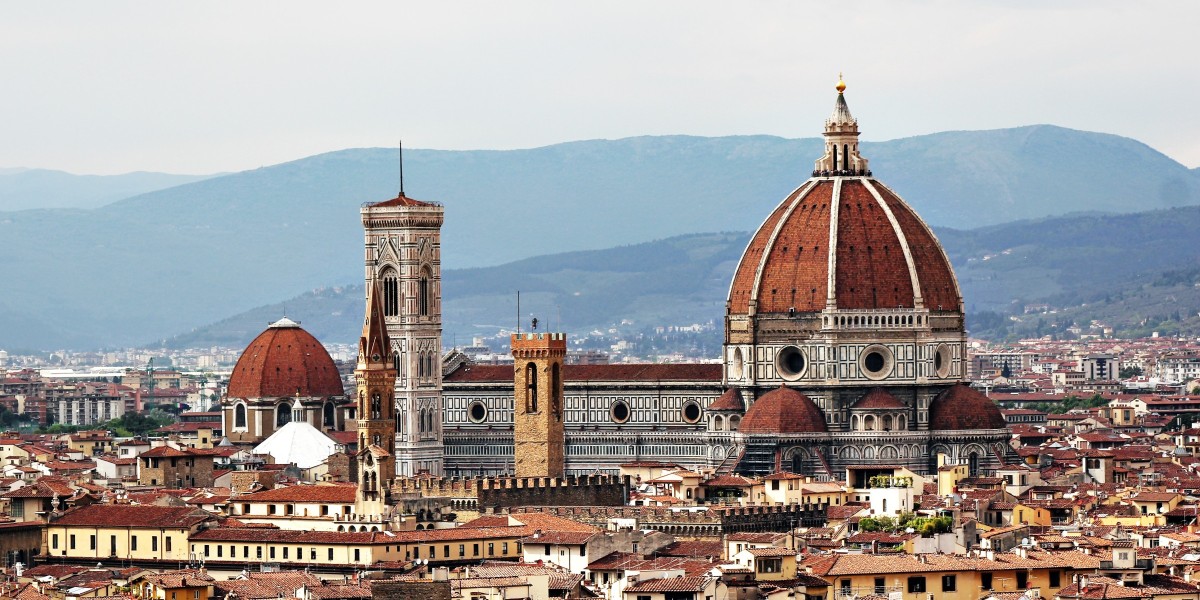
Florence is a popular destination for foreigners, blending Renaissance history with modern innovation. Renowned for its art, culture, and urban appeal, Tuscany's capital city also offers many job opportunities, especially in tourism, art, and fashion. The city's world-class universities also attract a diverse international community. Living in Florence offers the chance to explore countless historic attractions within walking distance while enjoying a gelato and strolling through streets that look like they're straight out of a film set. However, understanding the cost of living in Florence and other important factors will help you determine if it's the right fit for you.
Is Florence a good place to live?
As a UNESCO World Heritage Listed city, it doesn't come as a surprise that Florence is swimming in fascinating historic heritage. It is home to iconic landmarks like the Florence Cathedral, Ponte Vecchio, and the Uffizi Gallery. The city's historic charm, combined with its forward-thinking attitude, creates an ideal balance for living. Plus, the surrounding Tuscan countryside, adorned with vineyards and fairytale villages, means regular hikes in the country. Florence is a safe city with efficient public services and most things within walking distance. This adds to the high quality of life it high, attracting many Americans and other international people who choose to call Florence their home.
Is it expensive to live in Florence?
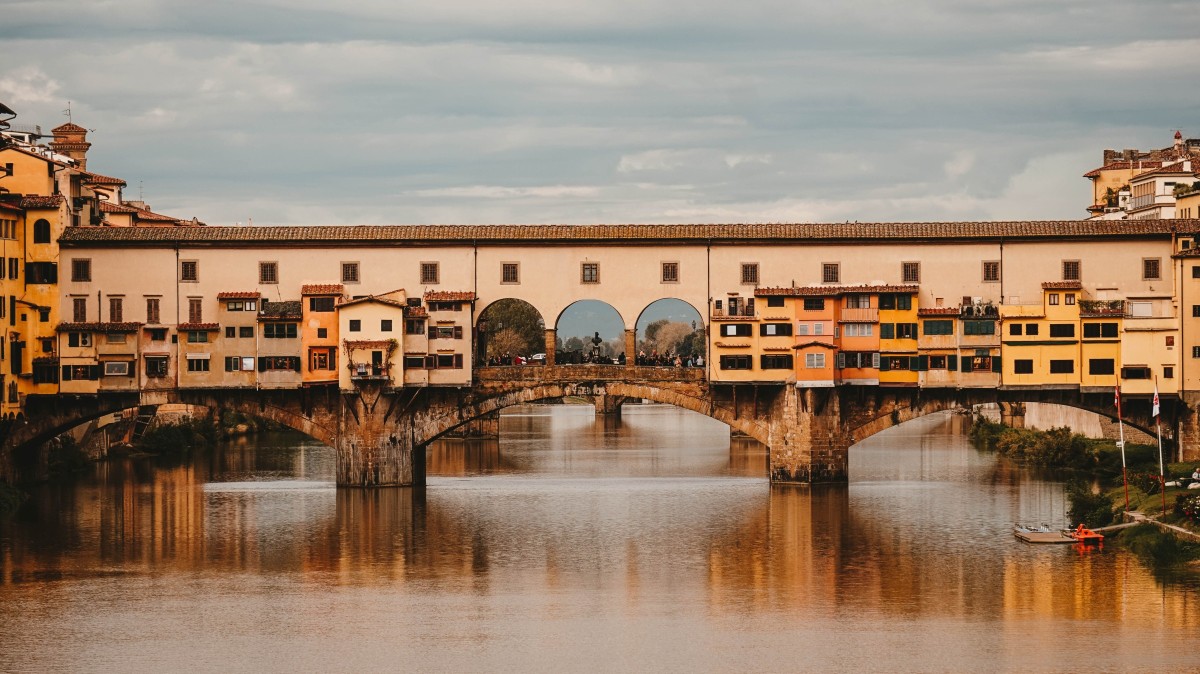
Like many cities, the cost of living in Florence is rising, but it is still possible to live comfortably with a decent income and money-saving tricks. Dining at a mid-range restaurant typically costs about €60 to €100 for two. A cappuccino at a local café costs around €1.80, and a monthly public transportation pass is approximately €40. Overall, a single person's estimated monthly expenses, including rent, are around €1,700. The cost of living in Florence for students can be slightly cheaper, at around €1,300 per month, with just over half of that going on accommodation.
Property prices vary depending on the area. In the historical centre, prices may be higher due to tourist demand. However, more affordable housing can be found in residential areas like Rifredi and Novoli. In March 2025, rent in Florence was, on average, €21.6 per m2, whereas in Rome it was €18.6 per m2 and in Milan, more expensive at €23.6 per m2. While Florence isn't the cheapest city in Italy, prices are comparable to other major cities like Milan.
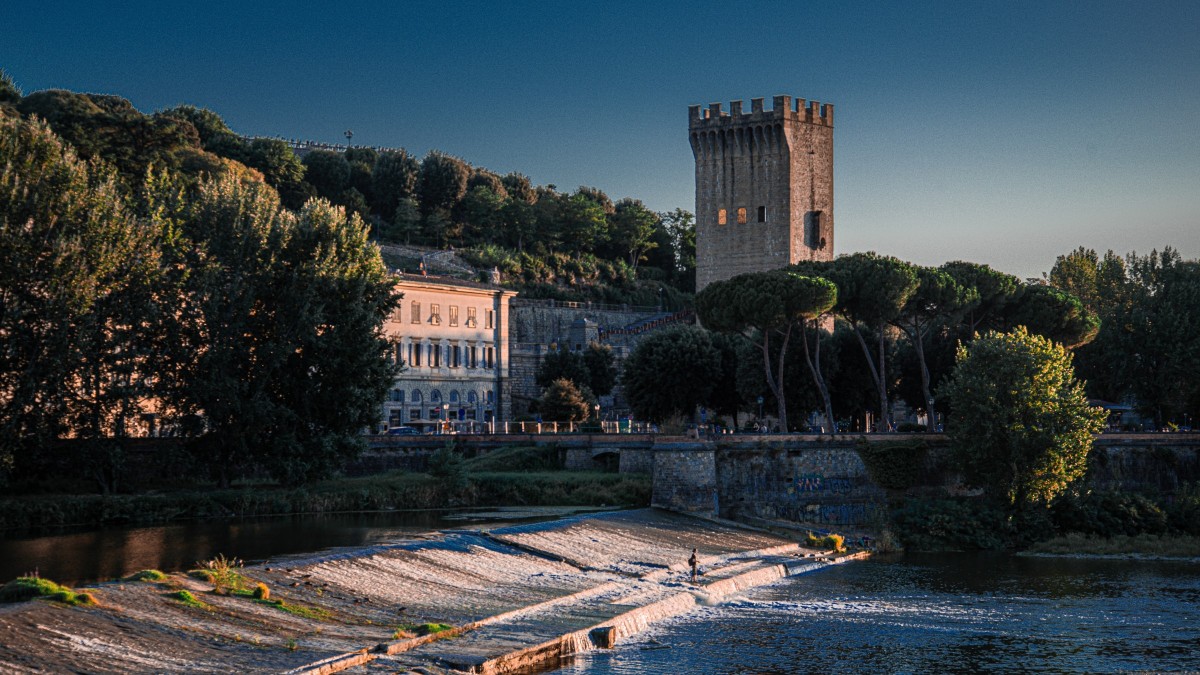
Pros and cons of living in Florence
It's easy to get swept up in the city's historic beauty and incredible food, but before relocating to Florence it's important to weigh up the good and the bad.
There are, of course, positives:
- High quality of life: good public services, relaxed lifestyle and nearby amenities.
- Historic appeal: mindblowing ancient sites around every corner.
- Cuisine: food culture is strong, with lots of local and international eateries to choose from.
Like all places, there are drawbacks:
- High cost of living: prices can be high, especially in the city centre.
- Busy tourist seasons: places can get crowded, especially during summer.
- Competitive job market: while there may be plenty of job opportunities, competition can be high in some industries.
Where to live in Florence
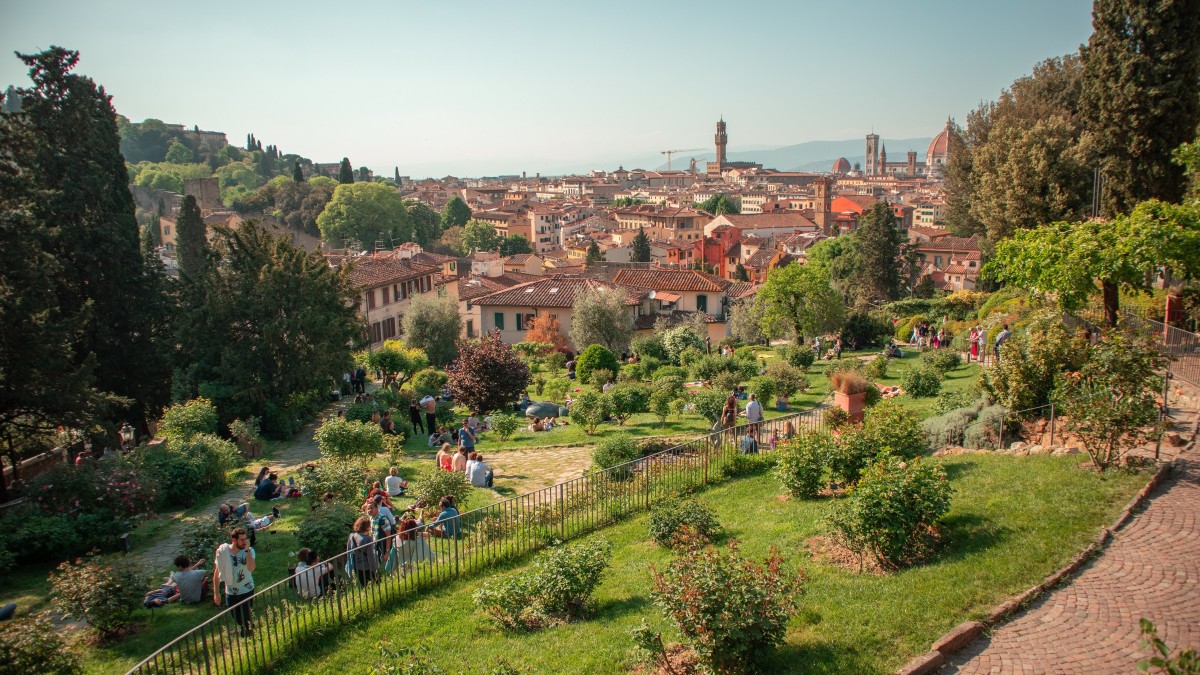
Florence is a city with a variety of districts, each with its own characteristics. The choice of where to live may depend on many factors, including your lifestyle, budget and personal needs. Some of the best places to live in Florence are in fact, away from the touristy centre and closer to green spaces.
Historic centre
The historic centre of Florence stretches from the Santa Maria Novella train station to the Boboli Gardens on the other side of the Arno. This area is characterised by narrow alleys and medieval architecture. However, the centre is the most expensive for buying property, at around €5,357 per m2 as of March 2025, and rent for an 85m2 apartment averages €2,000 per month.
Rifredi
A popular alternative for living in Florence is Rifredi, a district situated just beyond the historical centre with its own train station. Rifredi is an ideal location to live in Florence as a student, as several of the city's university faculties are located there. This area is also considerably cheaper than the centre. Average rent prices were on average €16.7 per m2 in April 2025, meaning an 85 m2 apartment costs around €1,400 per month.
Novoli
Novoli is a residential area situated west of Rifredi. Known for its tranquillity, parks, and services, it is recommended for those looking to live in Florence with children. The area is conveniently served by the tram, making it easily accessible, and is also relatively close to the city airport.
Isolotto
Isolotto is a very appealing district situated directly opposite the expansive Cascine Park. With its excellent services and leisure spots for unwinding at the end of the day, it is recommended for those looking to live in Florence for work.
Living in Florence as an expat
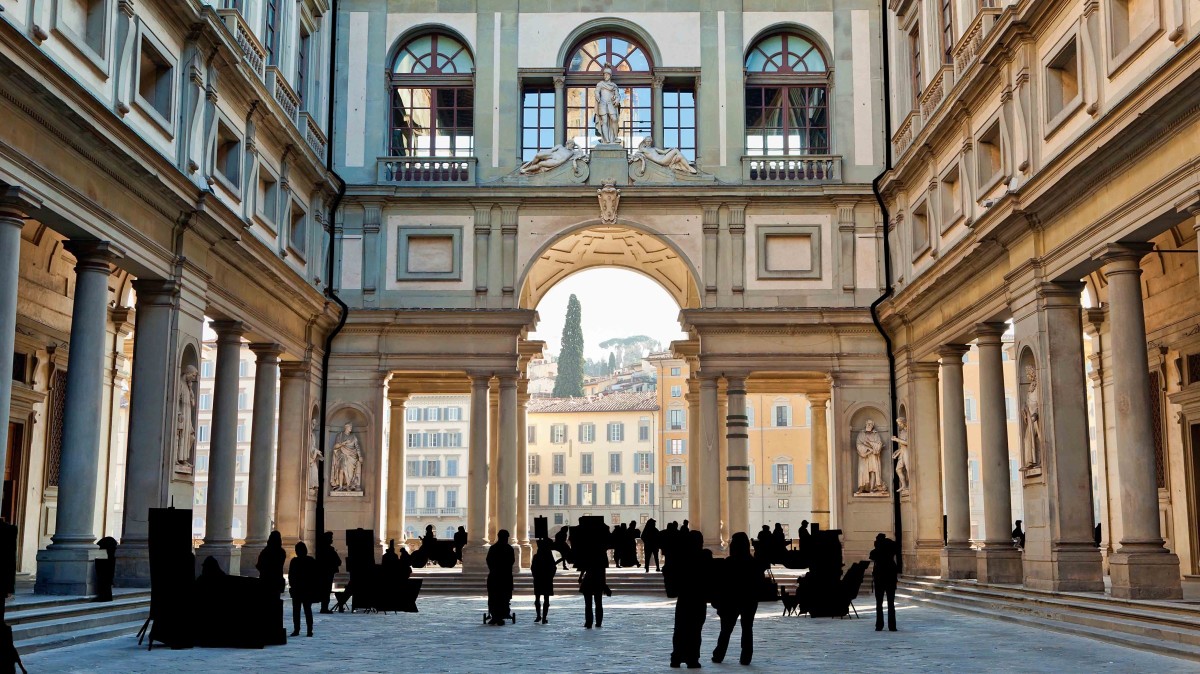
Thanks to a constant flow of foreigners settling down in Florence, the city's expat community is very much alive. You'll find social events such as digital nomad meetups and welcoming sports clubs. There's also an expat mum network, drawing clubs and hiking clubs. Living in Florence as an American, Brit, or other nationality provides a strong international community.
International and bilingual schools make relocating to Florence with a family easier. Additionally, you'll find English-speaking lawyers, mental health practitioners, and even English-speaking church communities.
Can you live in Florence without speaking Italian?
Due to the large expat community, some foreigners manage to get by speaking only English, but it's not the best approach for fully immersing yourself in the local culture. English is common in tourist areas and among younger residents. However, if you really want to get stuck into the local culture, learning Italian will help massively, even if you only plan on living in Florence for three months. There are lots of free language exchange meetups, and many language schools offer Italian lessons.
Live like a local in Florence
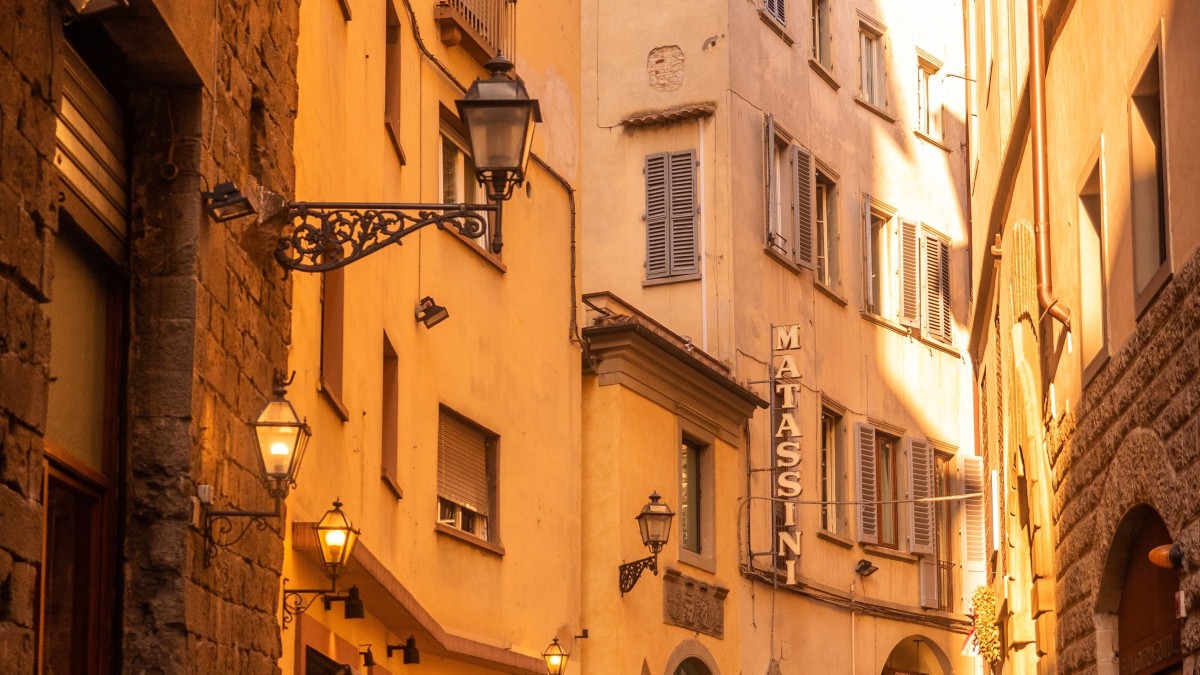
To truly embrace life in Florence, immerse yourself in the local culture and lifestyle. Start your day with an espresso at a neighbourhood café and explore markets like the Mercato Centrale for fresh produce and artisanal goods. Participating in local festivals such as the music festival Maggio Musicale Fiorentino, the Easter celebrations of Scoppio del Carro, art exhibitions, and concerts will connect you with Florence's lively arts scene.
Discover authentic dining by venturing beyond tourist spots to find trattorias and osterias where locals enjoy Tuscan specialities, such as ribollita and bistecca alla fiorentina. Embrace the Italian tradition of leisurely meals shared in good company.
Engage with locals by practising Italian phrases at community gatherings or volunteering in local initiatives. By adopting the leisurely pace and open-minded exploration of Florence, you'll enjoy a deeper connection to the city and its people.
